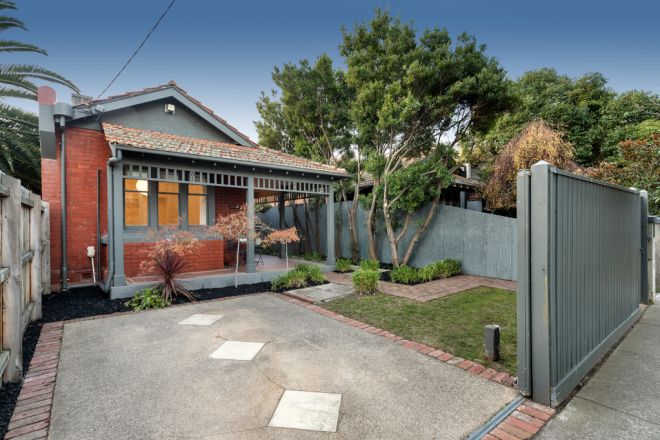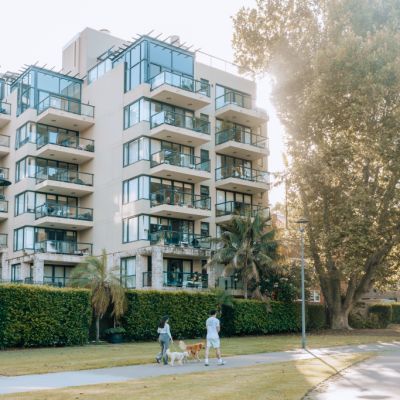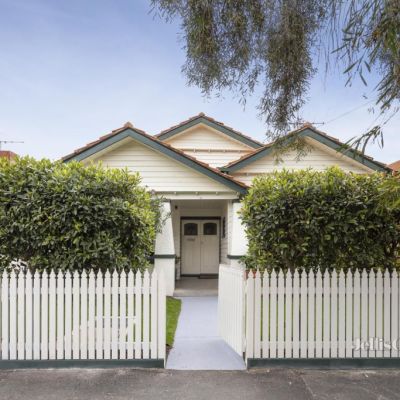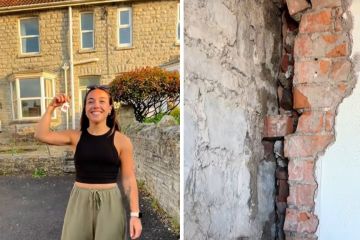‘As bad as it’s ever been’: Property prices blow out and pay rises lag
Housing prices have risen much faster than wages over the long term, making it harder for potential buyers unless they take on huge debt or receive family help, and experts warn the gap could widen.
Demand for homes has outstripped the pace of new home building, while lower interest rates until the past two years increased buyer budgets.
Meanwhile, a recent pick-up in wage growth shows signs of peaking at a lower level than home price growth.
Wages rose 4.1 per cent over the year to March, ABS figures this week showed, a fraction less than in the year to December. Home prices in capital cities rose 8.4 per cent in the year to March on Domain data, although the increase was lower in Melbourne and higher in Sydney.
But measured over the longer term, the gap is stark. Over the 12 years to March, home prices across the capitals soared 93.5 per cent, while wages rose 34.7 per cent.
Commonwealth Bank’s head of Australian economics, Gareth Aird, said interest rates had been in structural decline for three decades until the past couple of years.
“You’ve had borrowing power, for a given level of income, going up as rates came down, which enabled property prices to be going up over a long period of time,” he said.
More recently, property prices had risen faster than wages despite higher interest rates, something he attributed to strong population growth compared with the supply of homes, and buyers getting support from their parents. Recent data shows deposits are increasing as buyers purchase with the help of wealth created via housing – their family’s or their own – not only with savings from wages.
Aird also noted the increasing share of women in the workforce, as the rise of dual income households meant household income has grown faster than wages, another tailwind for property prices.
“Affordability for a median dwelling is as bad as it’s ever been in several of the major capital cities,” he said.

“It’s gotten increasingly harder to get into the housing market.”
He said buyers now needed larger deposits and had to use a greater proportion of their income to service a loan but were purchasing a property that might be smaller than their parents could have bought 30 years ago working in a similar occupation.
“Today there’s people on reasonably decent salaries that are struggling to get into the property market let alone buy the median dwelling.”
Aird did not see the gap closing without policy changes such as an increase in new home building, or a reduction in demand from investors.
PRD Real Estate chief economist Diaswati Mardiasmo also highlighted the shortfall in new house construction, alongside the structural decline in interest rates.
“Even before COVID we were noticing there’s a decline in the amount of houses being approved for development,” she said.
“Greenfield development has become quite expensive. Most developers, especially the ones in the inner cities or capital cities, because there isn’t that much land, they’re looking into units.”
She said the gap between growth in wages and property prices was now so wide it would be a challenge to close.

“Even if wages keep on going up, even if houses keep stable, there’s still quite a large gap that wages would have to be going up by – and for a long period of time – and houses would have to be stable for a long period of time,” she said.
“The trajectory is, all things being equal, that that gap is going to keep on widening because house prices keep on going up.”
She said it meant buyers might need to adjust their expectations and choose an apartment instead of a house, as is common in international cities.
Shore Financial chief executive Theo Chambers has noticed that buyers have been more willing to leverage themselves to buy property over the past five years.
“Especially during that low rate environment, we saw a lot of people get rid of their car lease and cut up credit cards, get rid of unhealthy debt on lifestyle things and put that capacity into buying homes,” he said.
But others have help from family towards their purchase, he said.
“Definitely the bank of mum and dad helps in multiple ways, whether it be guarantor loans or cash contributions. A lot of parents just give gifts to their kids to help with a home.“
We recommend
States
Capital Cities
Capital Cities - Rentals
Popular Areas
Allhomes
More










